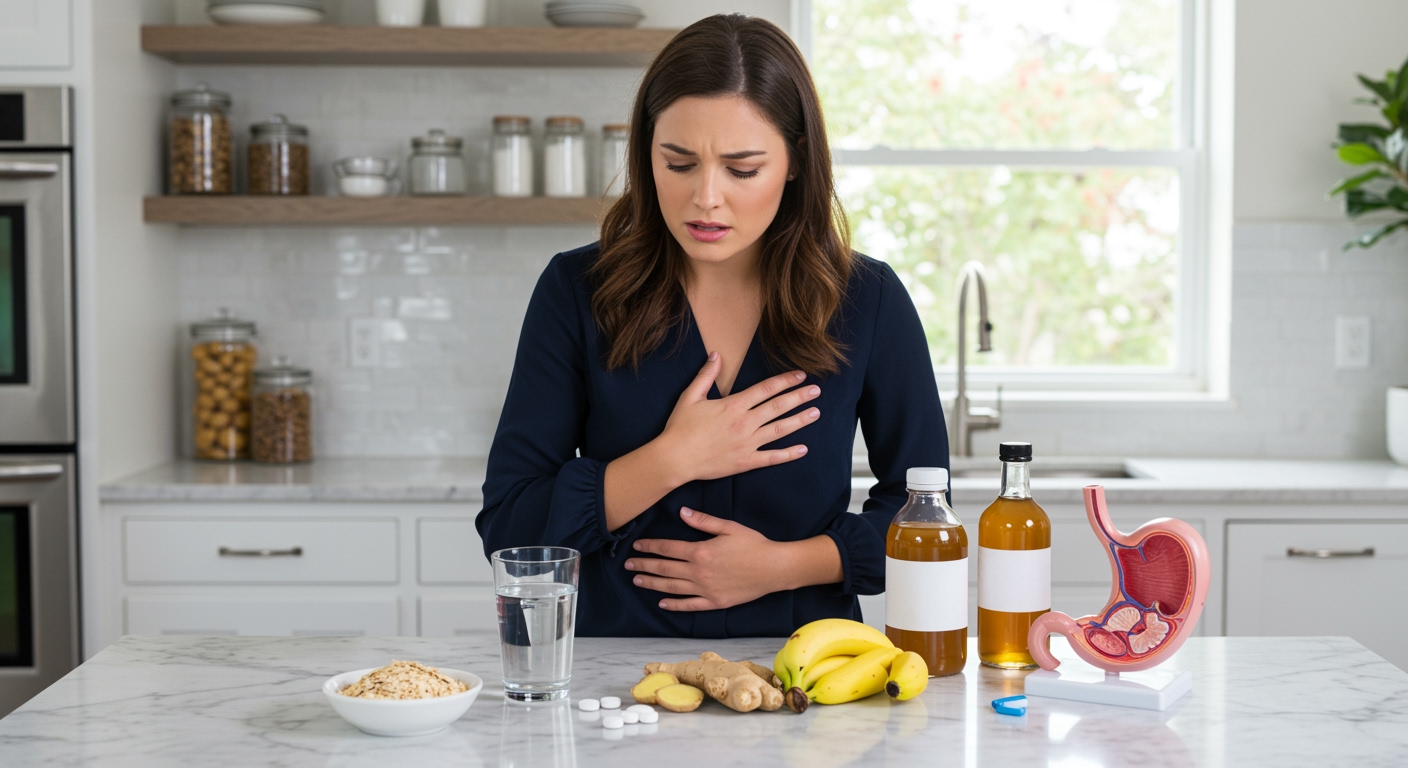✪ Key Takeaway: PCOS patients should limit caffeine to 200mg daily and avoid it during high stress periods to prevent hormone disruption.
Introduction
Your morning coffee ritual might be sabotaging your PCOS management without you even knowing it.
Many women with PCOS wonder if their daily caffeine habit affects their hormone balance and symptom severity.
Hi, I’m Abdur, your nutrition coach and today I’m going to explain how caffeine impacts PCOS and what limits you should follow for optimal health.
How Does Caffeine Affect PCOS Hormones?
Caffeine directly impacts your insulin sensitivity and stress hormone production in ways that can worsen PCOS symptoms.
When you consume caffeine, it triggers your adrenal glands to release cortisol, your primary stress hormone.
Elevated cortisol levels interfere with insulin function, making your cells more resistant to insulin uptake.
This insulin resistance creates a cascade effect that increases androgen production in your ovaries.
Higher androgen levels worsen common PCOS symptoms like irregular periods, acne, and weight gain.
Research shows that women with PCOS who consume more than 300mg of caffeine daily have significantly higher testosterone levels.
✪ Fact: One cup of coffee contains 95mg of caffeine while energy drinks can pack 300mg or more per serving.
What Is The Safe Caffeine Limit For PCOS?
The optimal caffeine limit for PCOS patients is 200mg per day, which equals about two cups of regular coffee.
This amount allows you to enjoy caffeine benefits without triggering significant hormonal disruption.
Studies indicate that staying below 200mg helps maintain stable insulin levels throughout the day.
You should spread this intake across morning hours rather than consuming it all at once for better blood sugar control.
Avoid caffeine after 2 PM to prevent sleep disruption, which can worsen insulin resistance.
Some women with severe PCOS symptoms may need to reduce their limit to 100mg daily or eliminate caffeine completely during flare-ups.
✪ Pro Tip: Track your caffeine intake using a food diary to identify patterns between consumption and symptom severity.
Which Caffeine Sources Should PCOS Patients Avoid?
Energy drinks and pre-workout supplements pose the biggest threat to PCOS patients due to their extremely high caffeine content.
These products often contain 200-400mg of caffeine per serving, instantly exceeding your daily safe limit.
Sugary coffee drinks from coffee shops combine caffeine with high sugar loads that spike insulin levels dramatically.
Diet sodas may seem safer, but they contain artificial sweeteners that can disrupt gut bacteria and worsen insulin sensitivity.
Chocolate contains both caffeine and sugar, making it a double threat for PCOS hormone balance.
Some medications and supplements also contain hidden caffeine that can push you over your daily limit unexpectedly.
✪ Note: Always read ingredient labels on supplements and medications to check for hidden caffeine sources.
What Are Better Alternatives To High-Caffeine Drinks?
Green tea offers a gentler caffeine option with only 25-50mg per cup plus beneficial antioxidants for PCOS management.
Herbal teas like spearmint and cinnamon provide flavor without caffeine while supporting hormone balance naturally.
Decaffeinated coffee allows you to maintain your coffee ritual without the hormonal impact.
Sparkling water with lemon or lime gives you the refreshing kick without affecting your insulin levels.
Matcha powder provides sustained energy release compared to coffee’s quick spike and crash cycle.
Adding cinnamon to your beverages can help improve insulin sensitivity while providing natural sweetness.
✪ Pro Tip: Gradually reduce caffeine over two weeks to avoid withdrawal headaches while transitioning to alternatives.
When Should PCOS Patients Completely Avoid Caffeine?
During high stress periods, PCOS patients should eliminate caffeine completely to prevent cortisol overload.
If you experience severe anxiety or panic attacks, caffeine can amplify these symptoms and worsen hormonal imbalance.
Women trying to conceive should avoid caffeine as it can interfere with ovulation and fertility treatments.
During PCOS flare-ups with worsening acne or irregular periods, temporary caffeine elimination may help reset hormone levels.
If you have trouble sleeping or experience frequent night wakings, caffeine could be disrupting your recovery cycles.
Some medications for PCOS interact with caffeine, requiring complete avoidance for optimal treatment effectiveness.
✪ Note: Consult your healthcare provider before eliminating caffeine if you consume more than 400mg daily to avoid severe withdrawal.
The Bottom Line
PCOS patients should limit caffeine to 200mg daily and avoid it during stressful periods to maintain optimal hormone balance.
Small changes in your caffeine habits can create big improvements in your PCOS symptoms and overall quality of life.
I would love to hear about your experiences with caffeine and PCOS management, so please share your questions or feedback in the comments below.
References
At NutritionCrown, we use quality and credible sources to ensure our content is accurate and trustworthy. Below are the sources referenced in writing this article:
- PubMed: Caffeine and PCOS Research Study
- PMC: Caffeine Effects on Hormonal Balance
- Nature: Caffeine and Insulin Sensitivity Research
- PCOS Fertility Nutrition: How Does Caffeine Affect PCOS





